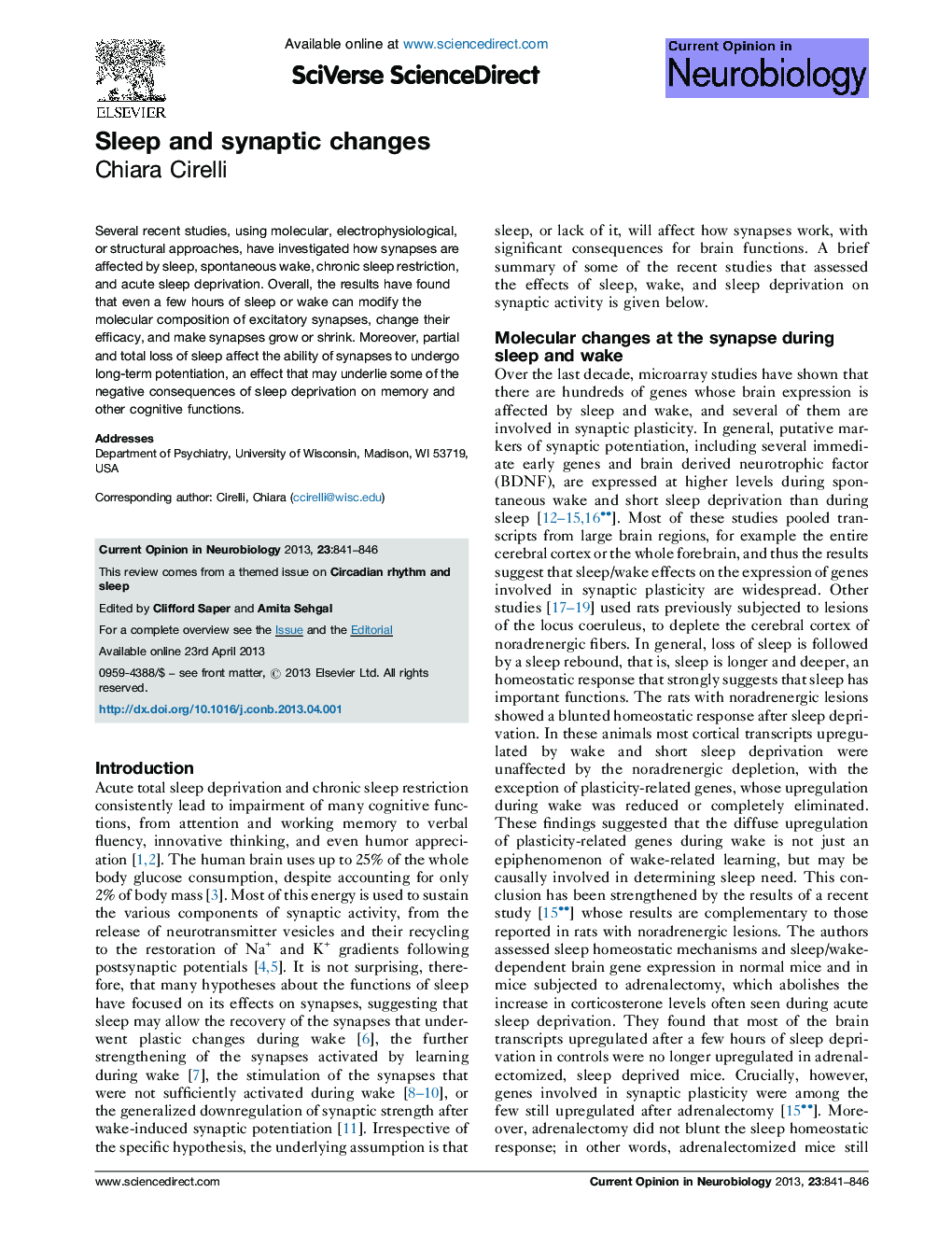| Article ID | Journal | Published Year | Pages | File Type |
|---|---|---|---|---|
| 6266623 | Current Opinion in Neurobiology | 2013 | 6 Pages |
â¢Synapses undergo changes due to the physiological sleep/wake cycle or as a consequence of partial or total sleep deprivation.â¢Sleep deprivation impairs the ability of synapses to undergo activity-dependent plastic changes.â¢The cognitive impairment caused by sleep deprivation is likely mediated by the effects of sleep loss on synaptic function.
Several recent studies, using molecular, electrophysiological, or structural approaches, have investigated how synapses are affected by sleep, spontaneous wake, chronic sleep restriction, and acute sleep deprivation. Overall, the results have found that even a few hours of sleep or wake can modify the molecular composition of excitatory synapses, change their efficacy, and make synapses grow or shrink. Moreover, partial and total loss of sleep affect the ability of synapses to undergo long-term potentiation, an effect that may underlie some of the negative consequences of sleep deprivation on memory and other cognitive functions.
